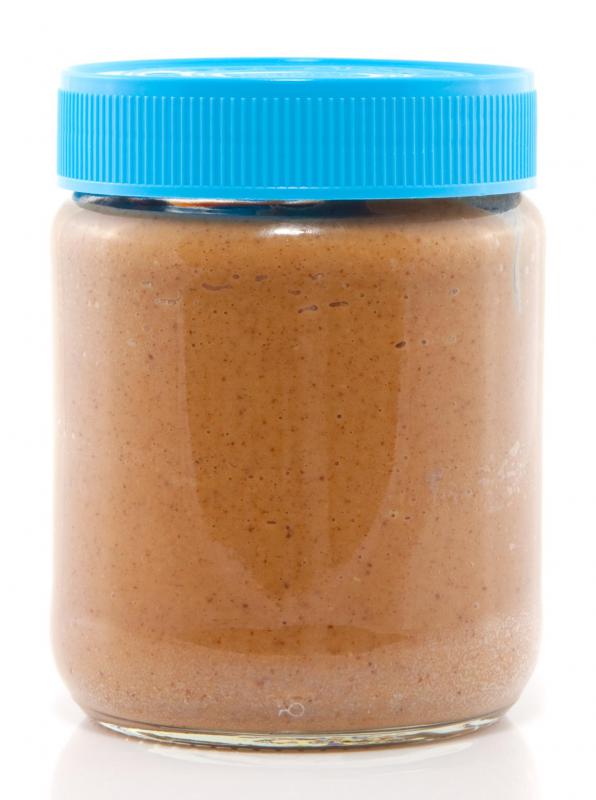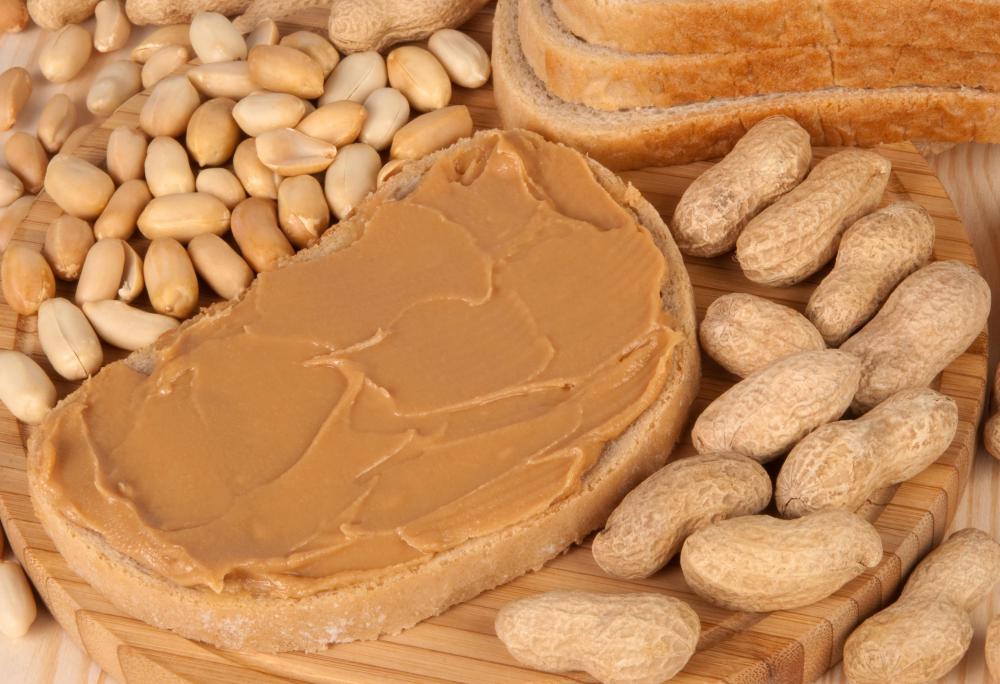At TheHealthBoard, we're committed to delivering accurate, trustworthy information. Our expert-authored content is rigorously fact-checked and sourced from credible authorities. Discover how we uphold the highest standards in providing you with reliable knowledge.
What Are the Signs of an Allergic Reaction to Peanut Butter?
The signs of an allergic reaction to peanut butter typically include skin reactions, like hives or eczema. Some people may have stomach and digestive trouble, or experience other common allergy symptoms, such as coughing and sneezing. In some cases, the reaction can be severe and may include facial swelling and trouble breathing.
A rash or other reaction on the skin is a very common allergic reaction to peanut butter and other foods. Usually, a skin reaction is considered a mild reaction. A person may break out into hives or raised red rashes on the skin or experience mild swelling in the face. There may also be a feeling of itchiness or tingling when an allergic person is exposed to peanuts or peanut butter. Eczema, an inflammation of the skin that's often characterized by red, flaky patches, is another common reaction to certain foods.
Some people experience digestive problems when they eat peanut butter. They may have diarrhea or vomiting, along with stomach pains and cramps. The reaction usually passes once the peanut butter is out of the person's system.

More general signs of an allergic reaction can occur after a person is exposed to peanuts. His eyes may water, and his nose may become congested or runny. Sometimes, peanut butter can trigger an asthma attack in a person who is allergic. He can experience wheezing, shortness of breath, and coughing. Some people may feel as though they will faint or have chest pain.

Peanut allergies often cause a very severe reaction, even if a person is exposed to only a very small amount of peanuts or peanut butter. Anaphylaxis is a very common reaction in people with this allergy. Signs of anaphylaxis include a sudden drop in blood pressure and swelling in the throat that makes breathing difficult. A person may pass out or become extremely dizzy. Usually, the heart rate increases.

When someone experiences anaphylaxis, he needs to go to the emergency room right away. Typically, a person with a severe peanut allergy will carry an epinephrine injector, which he can inject into the thigh when a severe reaction occurs. People with minor reactions may recover with over-the-counter antihistamines.
The best way to prevent an allergic reaction to peanut butter is to avoid the ingredient completely. A person who is allergic needs to be diligent about reading food labels and eating only foods that are guaranteed to be free of any peanut products. Some people also need to be careful about eating tree nuts such as almonds, as they may trigger a similar reaction.
AS FEATURED ON:
AS FEATURED ON:

















Discussion Comments
@raynbow- I know a lot of people who are allergic to peanuts, and they are not able to eat any foods that contain peanuts in any form. Unfortunately, I'm pretty sure that your nephew will have to avoid all foods that contain peanuts too, including peanut butter.
Since this type of food allergy can cause major allergic reactions, it is not a condition to take lightly. Anyone who is ever in charge of your nephew's care should be made aware of his allergy to be able to prevent him from eating foods that will trigger his allergic reaction. His parents should follow up with his doctor to determine how severe his peanut allergy is. It is possible that he will have to carry an allergic reaction treatment with him to prevent major problems like anaphylactic shock.
If someone is allergic to peanuts, does this automatically mean that he will also be allergic to peanut butter? I have a young nephew who can't eat peanuts due to allergies, but I hate for him not to be able to enjoy peanut butter if it is o.k. for him to eat it.
Post your comments